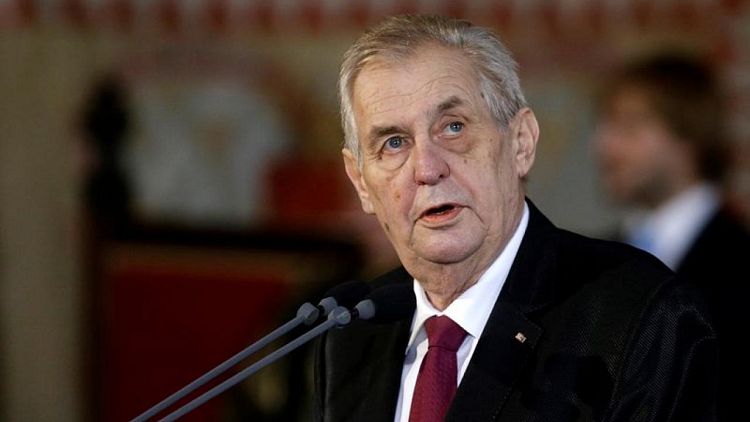PRAGUE - Czech President Milos Zeman said NATO had failed in Afghanistan and its legitimacy was in question, as he called for his country to focus to national defence rather than "wasting money" on the alliance.
The Czech Republic has pledged to raise its defence spending to 2% of gross domestic product, the NATO target level, by 2024, but the government said in June that this deadline would not be met due to the economic crisis after the coronavirus pandemic.
Zeman, known for his pro-Russia and pro-China stance, said that NATO's main role was to fight global terrorism, but the alliance has failed at that task now.
"The distrust towards NATO from a number of member countries will grow after this experience, because they will say - if you failed in Afghanistan, where is a guarantee that you won't fail in any other critical situation?" Zeman said in an interview published by www.parlamentnilisty.cz on Tuesday, a website favoured by the president for airing his views.
"Now that investing in NATO is kind of wasting money, our defence spending should focus on national defence, on national (military) procurement," Zeman said.
NATO said on Tuesday that the Taliban must not let Afghanistan become a breeding ground for terrorism again, warning that the alliance retained the military power to strike any terrorist group from a distance.
Under the Czech constitution, the president is the commander-in-chief of the Czech armed forces, but it is the government which sets defence policy.
